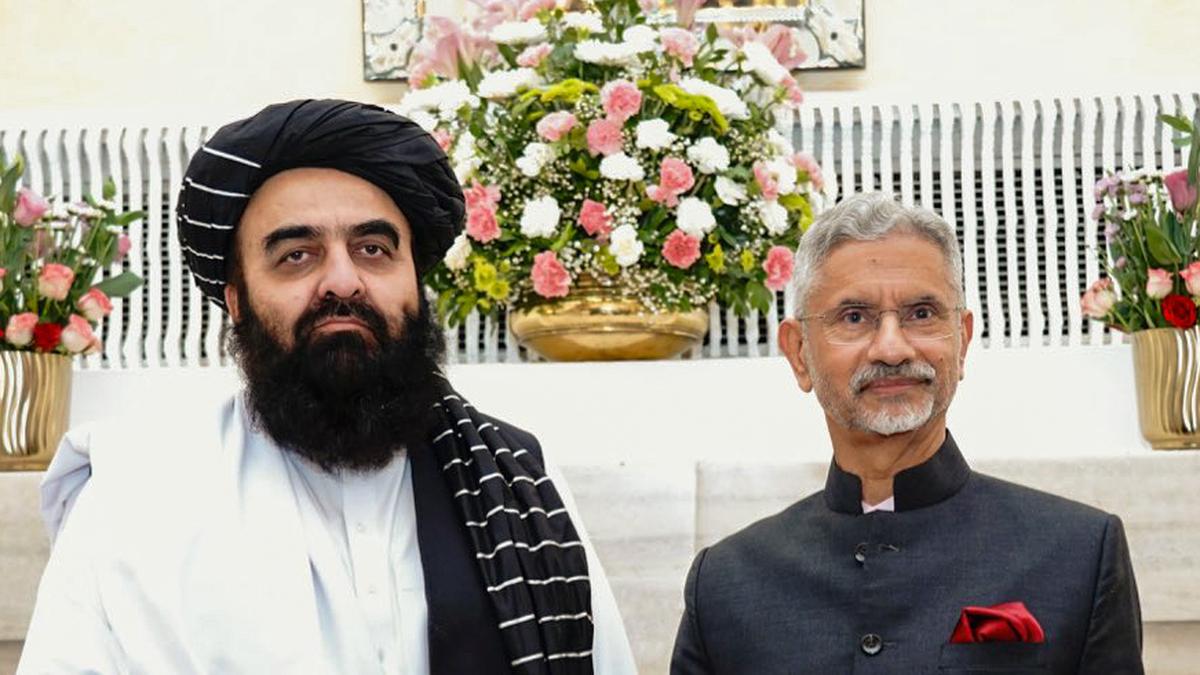**India's Renewed Engagement with the Taliban: Context, Motivations, and Implications**
In October 2025, a significant diplomatic development took place in New Delhi: India hosted the Acting Foreign Minister of Afghanistan, Mawlawi Amir Khan Muttaqi, a senior leader in the Taliban government that has controlled Afghanistan since its forceful takeover in 2021. The visit, which involved formal meetings with Indian External Affairs Minister S. Jaishankar and full diplomatic protocol, marked a new chapter in India’s dealings with the Taliban regime—a relationship that has until recently been characterized by caution, tension, and outright refusal to recognize the Taliban’s authority.
**From Hesitation to Engagement**
For years, India was seen as slow to engage with the Taliban, wary of lending legitimacy to a regime notorious for its human rights abuses and deeply concerned about the implications for regional security, particularly in light of the Taliban’s historic ties to Pakistan and various anti-India terrorist groups. However, recent months have seen the Indian government recalibrate its approach, moving towards cautious but increasingly overt engagement with Afghanistan’s de facto rulers.
This shift can be traced back to January 2025, when Foreign Secretary Vikram Misri met with Mr. Muttaqi in Dubai—an unprecedented step that signaled India’s willingness to open channels of communication. The two sides discussed the possibility of enhancing trade, a recurring theme as India seeks to maintain its economic influence in Afghanistan. In May, following a ceasefire in the wake of the latest India-Pakistan border tensions, External Affairs Minister Jaishankar spoke directly with Muttaqi, expressing gratitude for Afghanistan’s support and condolences after a terrorist attack in Pahalgam, Kashmir.
The government’s determination to engage the Taliban became even clearer when, in August, India petitioned the United Nations Security Council (UNSC) to allow Muttaqi—who has been subject to international travel sanctions since 2001—to visit New Delhi. The request was initially denied but was approved upon a second attempt, clearing the way for the week-long official visit in October.
Despite these overtures, India still does not formally recognize the "Islamic Emirate of Afghanistan," the name the Taliban has given its regime. Nevertheless, the manner in which Muttaqi was received—with meetings at Hyderabad House, security and hospitality arrangements, and full diplomatic protocol—signaled a pragmatic acceptance of the Taliban as Afghanistan’s ruling authority, if not full diplomatic recognition.
**Key Outcomes and Public Messaging**
During the high-level talks, Jaishankar announced India’s intention to upgrade its technical mission in Kabul to a full-fledged embassy, with the appointment of diplomats expected soon. This move is highly symbolic, representing a significant step towards normalization of bilateral relations. India also donated 20 ambulances and pledged further assistance in the form of health infrastructure, water projects, and humanitarian aid.
The joint statements from both sides reflected a mutual commitment to combat terrorism in the region. The Afghan delegation assured India that Afghan soil would not be used by groups hostile to India—a critical issue given persistent reports (including from the United Nations) that terror outfits like Jaish-e-Mohammad and Lashkar-e-Taiba have maintained camps in eastern Afghanistan.
One notable omission from the talks and public statements, however, was any mention of the dire conditions for women and girls under Taliban rule. Since regaining power, the Taliban have imposed a harsh interpretation of Sharia law, banning women from education, most forms of employment, and public spaces, and enforcing strict dress codes. The absence of public criticism on this front suggests that India's current priorities are strategic and geopolitical, rather than normative or values-driven.
**Geopolitical Context and Motivations**
Muttaqi’s visit coincided with renewed violence on the Afghanistan-Pakistan border. Pakistan had launched airstrikes against Kabul, blaming the Taliban for sheltering the Tehreek-e-Taliban Pakistan (TTP), a militant group responsible for attacks inside Pakistan. The timing of Muttaqi’s visit to New Delhi, amidst these hostilities, has been interpreted by analysts as India’s attempt to exploit the rift between the Taliban and Pakistan—its traditional adversary—thereby gaining leverage in the region.
But India's motivations go beyond the immediate tactical advantage over Pakistan. The regional environment is increasingly unstable: several South Asian governments have been toppled by protests, India has lost some of its most reliable partners, and China is expanding its influence, including in Afghanistan. Moreover, India’s preferred

